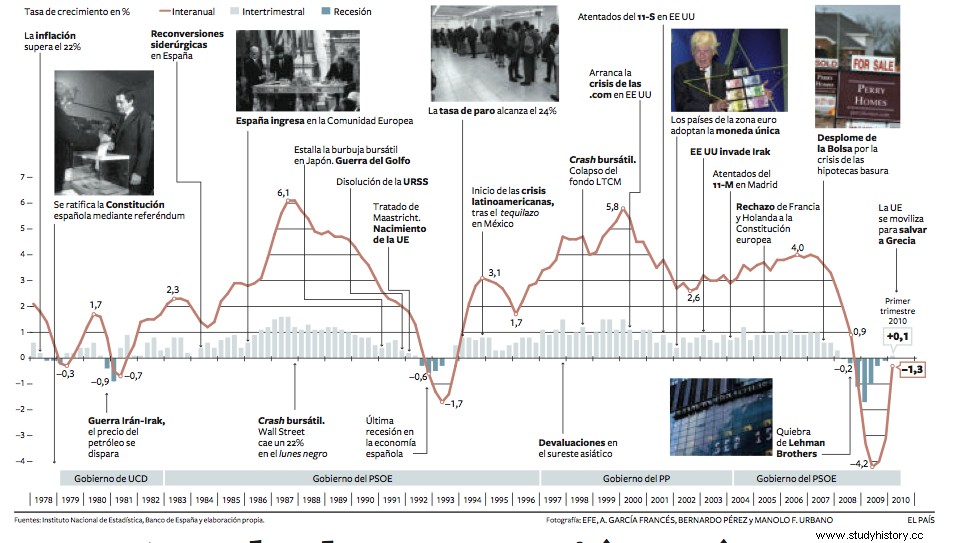The last subject of History of Spain analyzes the period of political transition (1975-1996). In this period the Spanish economy suffered two serious economic crises, although less than the current one. The previous graph helps us to understand the evolution of the GDP in Spain in those years; From their analysis we can draw the following conclusions:
- The first years of the political transition coincide with the arrival in Spain of the effects of the first oil crisis (1973). The recessions of the years 1979 and 1981 have that cause. The economic difficulties of the period compounded the political problems of the time, already serious. However, the main political groups were able to agree on a common economic policy that was embodied in the Moncloa Pacts.
- The PSOE government period can be divided into three economic stages:the first (1983-87) was characterized by an improvement in the economic situation that made it possible to leave behind previous recessions; the second (1988-1993), on the contrary, registered a sharp worsening of the situation that reached its maximum in 1993. It was also an international crisis, aggravated in Spain by high inflation. The last socialist stage (1994-1996) marked the beginning of the recovery, which continued during the first PP governments (1997-2000).
- All the crises produced in Spain have been manifestations of international economic crises. The inclusion of the Spanish economy in transnational economic circuits - a process that culminated in our entry into the euro zone (2002) - makes it highly dependent on the cyclical evolution of capitalism, a situation that is more accentuated in the current period of economic globalization.
 Source:EL PAIS, 08/0572010
Source:EL PAIS, 08/0572010 